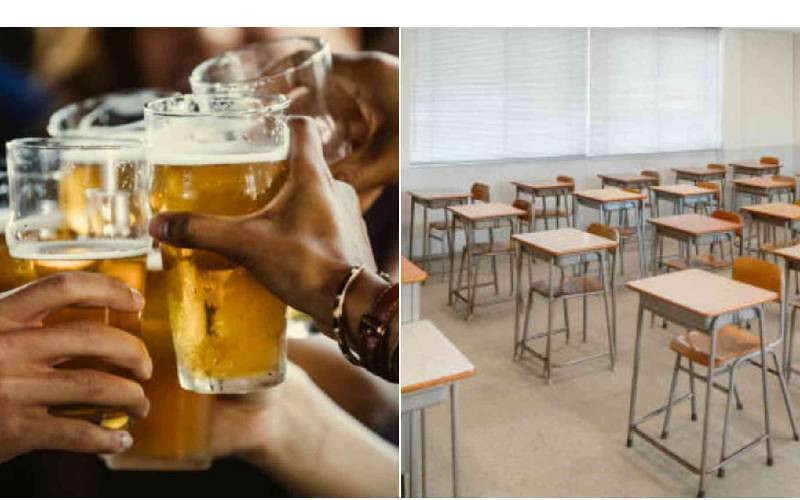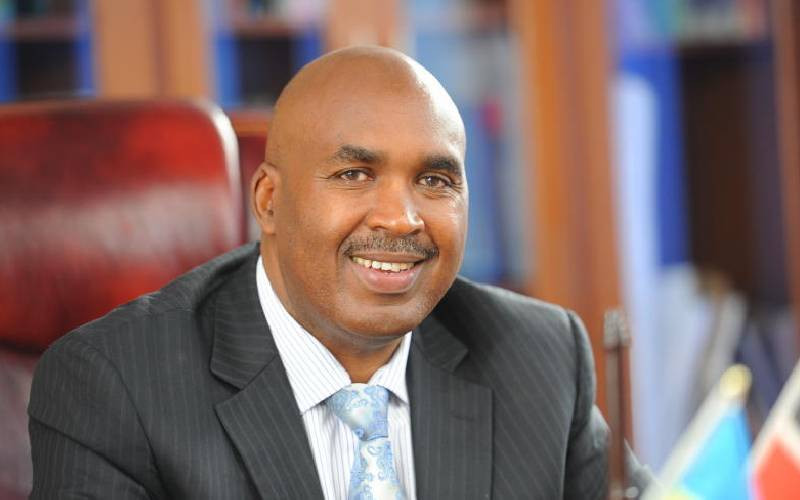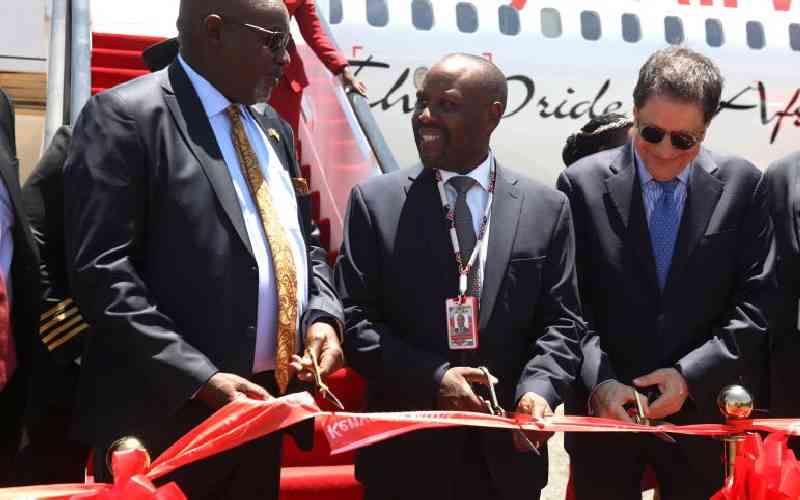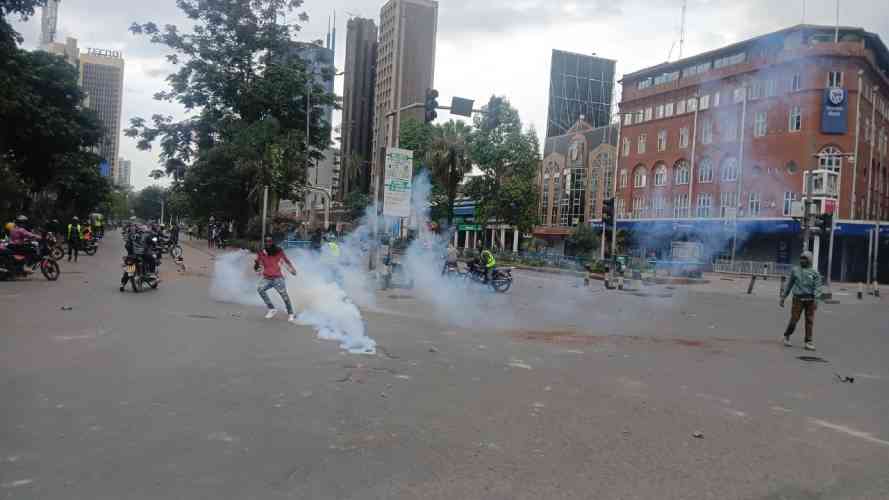Despite efforts to protect schoolchildren from alcohol and drug abuse, several bars and entertainment venues continue to operate in dangerous proximity to educational institutions. Parents and educators accuse these establishments of facilitating access to alcohol and contributing significantly to substance abuse among students; surprise nationwide inspections by The Standard found that some bars are no more than 100 meters from schools.
Kenya’s Alcoholic Beverage Control Act (2010), better known as the Mututo Act, clearly defines the location of such establishments. According to the Act, a condition for obtaining a license is that the premises must be at least 300 meters away from kindergartens, primary, secondary and other educational institutions attended by persons under the age of 18 years.
However, in some areas, the learning process is disrupted by loud music and rowdy people, effectively turning schools into party venues. In Mombasa, many residents complain that such establishments continue to exist despite the ongoing campaign to keep drinking establishments away from schools.
For example, Likoni Muslim Comprehensive School has long struggled with the problems associated with several alcoholic establishments in the vicinity. Until recently, children mingled with drinkers at recess.
However, the construction of a high perimeter wall and a change in the location of the school’s main entrance have minimized direct contact with the drinkers. These bars sell beer, wine, spirits and a locally made palm liquor called munazi.
Betty Sharon, executive director of Women’s Collaboration for Development (CWID), said that bars near schools are not uncommon in Mombasa. She noted that efforts to remove them have so far been unsuccessful.
She noted that areas such as Kongoware and Maweni in Nyali Province and Kisauni and Bamburi in Kisauni Province were particularly affected. To save the children, the provincial government should take strict action against bar operators near schools.
The problem is the licensing of bars operating near schools. Currently, there are areas where bars and wine and liquor vendors compete with saloons,” she said.
In 2023, Governor Abdul Swamad Nasir ordered the relocation of bars operating within 150 meters of schools and places of worship to combat the growing alcohol and drug addiction among school children. Ordered.
A similar campaign is underway in Kilifi and Kwale counties, with Kilifi and Malindi towns having significantly reduced the number of bars near schools. However, some bars in the Rift Valley are openly breaking the rules.
Residents of Bomet say some establishments operate with impunity with the assistance of police officers who turn a blind eye. He said since bars are big business in Kenya, closing them down will have a negative impact on the country’s economy.
We cannot suddenly close them down. Dialogue is needed to solve the problem.” Abrupt closure will hurt our businesses and our families.
We need dialog to solve these problems.” In Kerijo District, Londiani District Police Commander Agnes Kunga confirmed that two bars near Kamungei Primary School and Central Primary School were closed following complaints from educators. We immediately closed the bars following complaints from the educators.” Stay up to date with the latest news.
Subscribe to our newsletter Senator Aaron Cheruiyot has called for the closure of all bars near schools in the county because of their negative impact on students and the community. Nakuru County Commissioner Royford Kibaara said all entertainment establishments near schools have been shut down.
In Kisumu, several bars are blatantly ignoring the 300 meters rule that prohibits such establishments near schools, religious centers and residential areas. For example, Lakesite School is adjacent to Geckos Bar, and entertainment venues often park next to the school gates and sit at the fence, causing concern for parents and education staff.
In Wayside, several bars and entertainment venues operate in close proximity to Kisumu Junior and Kisumu Senior Schools. Interestingly, the mosque is also just 30 meters away from the entertainment establishments and according to Cephas Ogwangu, Chairman of M-M Primary School Parents Association, the entertainment area is a nightmare for parents.
However, bar owners in Kisumu have denied allegations that they are not following the rules. The blame game According to Dan Maneno Ouma, chairman of the Kisumu County Bar Owners Council, some of the bars accused of operating near educational institutions were established under the Physical Development Planning Act, which classifies the location as a commercial district. “If there is a shopping mall in that place, then it is a commercial area and that is what the Physical Development Planning Act requires which determines whether it is a commercial or residential area,” Ouma said.
He also accused some heads of educational institutions, especially private schools, of overlooking the 300 meters rule when setting up their schools only to complain later that bars were interfering with learning activities. Parents, teachers and community leaders in the central region are also sounding the alarm.
Particularly affected is Northern Imenti District, where Gitolo Elementary School in Makutano is located next to several bars. Local businesswoman Gladys Karimi expressed frustration at the continued presence of these establishments.
Not only are they noisy, but they have a negative impact on our children. We are tired of demanding their removal,” Karimi said.
Festus Mawira, Upper Igoki assistant station manager, acknowledged the problem and promised to address it. He explained that the Liquor Licensing Board conducts an assessment before allowing bars to operate.
He noted that some bars do not meet the license requirements and lack proper sanitation. Dr. Mbaabu Muguna, the Meru County Liquor Control Board CEO, announced plans to remove bars near schools and stressed the need for stricter enforcement of licensing laws.Reporting by Clinton Ambujo, Phares Mutembeya, Patrick Beja Kiprono Kurgat, Nikko Tanui and Daniel Chege.

























